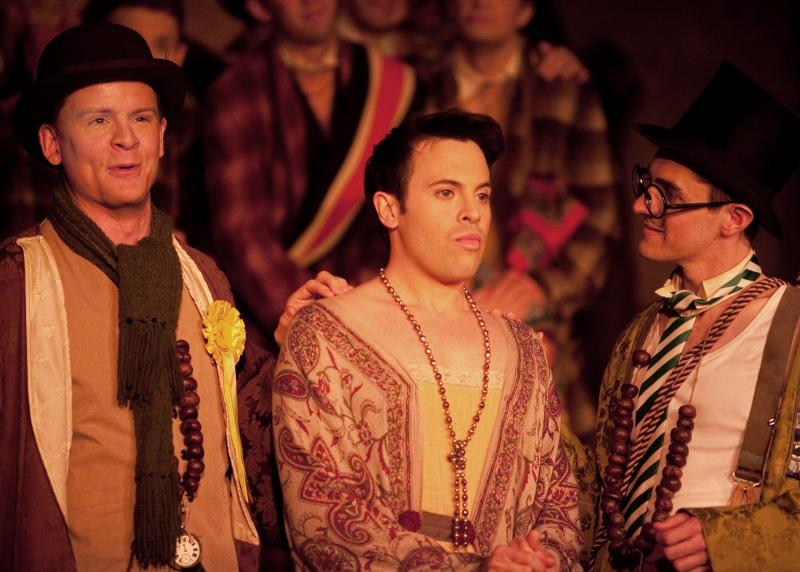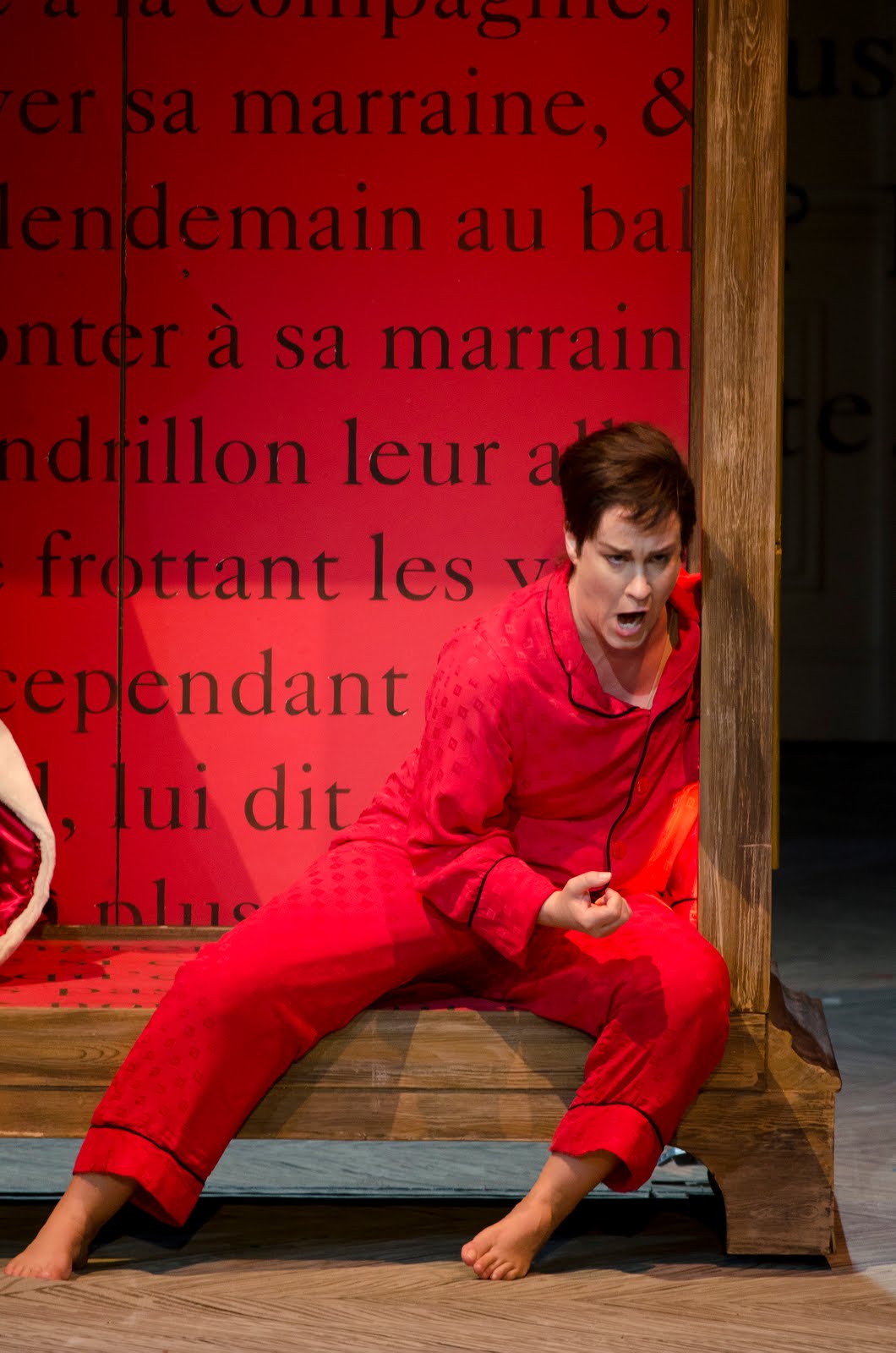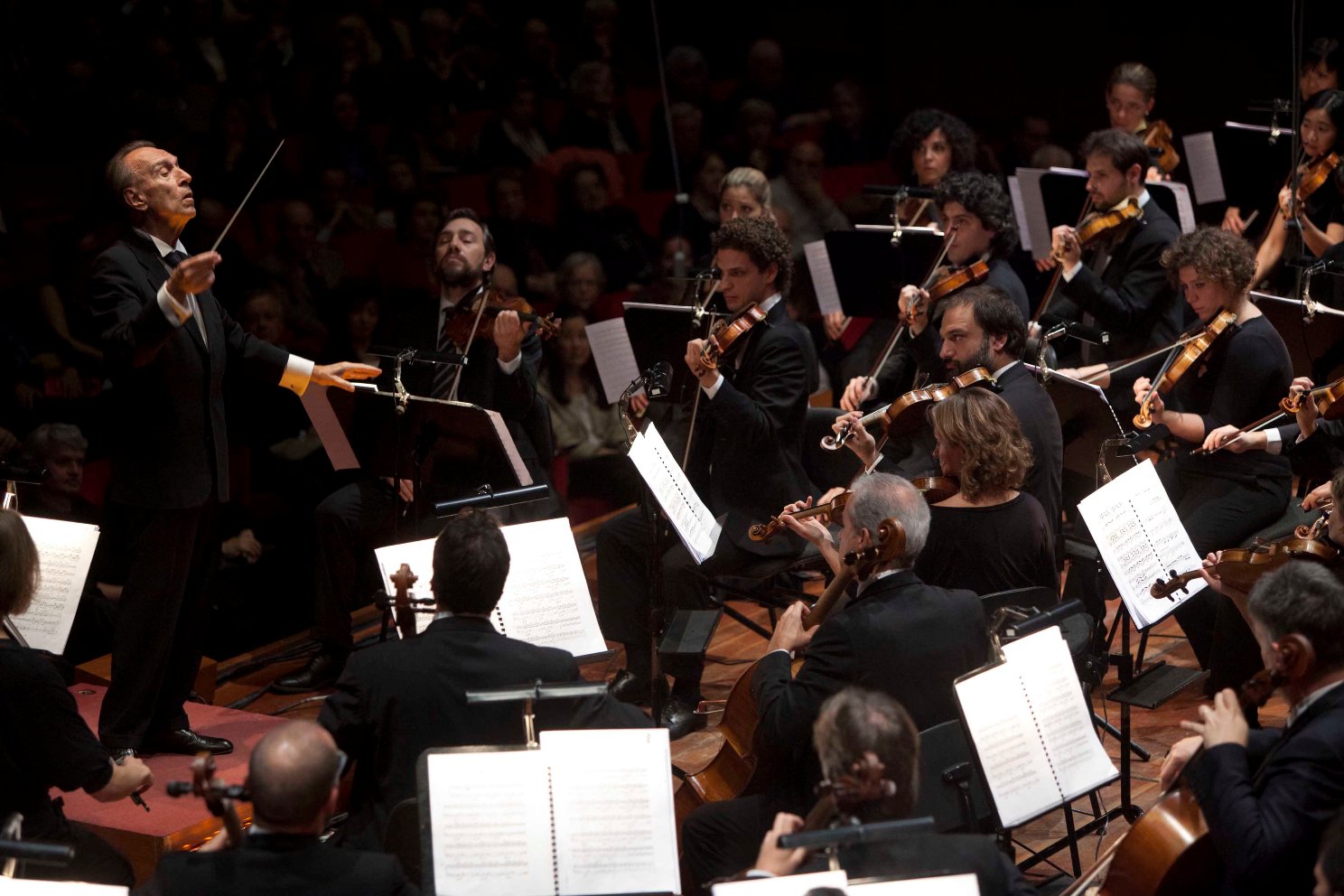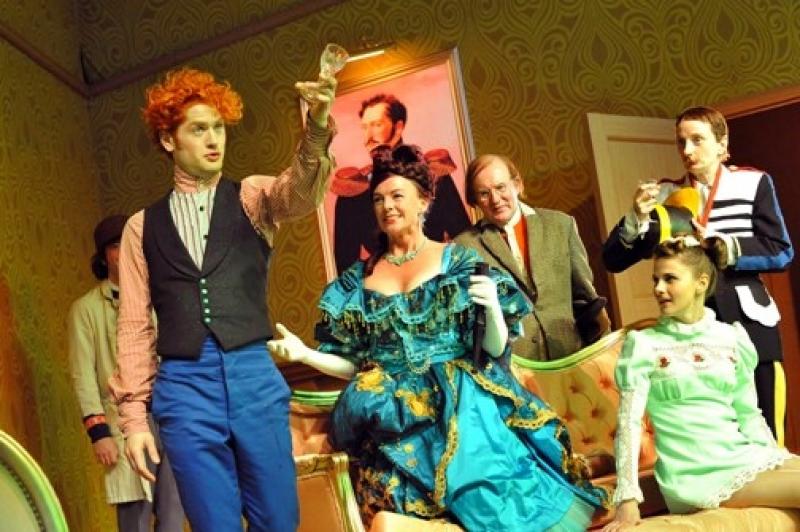2011: Schoolroom Fairies and a Cross-Dressing Mezzo | reviews, news & interviews
2011: Schoolroom Fairies and a Cross-Dressing Mezzo
2011: Schoolroom Fairies and a Cross-Dressing Mezzo
More standout performances than total works of art on the music scene, but two British school fantasies excel

Two precisely imagined dream-visions bookend a cornucopia on the musical front. I’ll start with the deadly but save the apparently frivolous for the top slot. Christopher Alden’s pitiless exiling of Britten’s A Midsummer Night’s Dream from Elizabethan wood to 1960s school block was to opera what Lars von Trier’s Melancholia was to film: audience-sundering, often alienating, sometimes enticing, but very much its own consistent world.
ENO’s newcomer on the schoolboy front, Nico Muhly’s Two Boys, rang hollow in a way that Turnage’s Anna Nicole over at the Royal Opera did not. The post-Brecht/Weill American tragicomedy's pathos and absurdity were stoked and focused by the irreproachable teamwork of Antonio Pappano and Richard Jones. Their Puccini Trittico ended with a best-ever Gianni Schicchi, though the indisposition of Anja Harteros robbed us of a high-level heartbreaking Suor Angelica. Back at ENO around the same time, Weinberg's The Passenger - beyond entertainment, an honourable memorial to Holocaust survivors, not a masterpiece but with masterly scenes - stood in a class of its own.
 There were plenty of vocal performances to treasure. Two intense, very different home-grown mezzos led the way: Christine Rice, heartbreaking as a yellow-starred Marguerite in Terry Gilliam’s fitfully brilliant ENO Berlioz Damnation of Faust, and Alice Coote, an incandescent Prince Charming (pictured right by Bill Cooper) in a long-awaited Royal Opera production of Massenet’s Cendrillon. If Coote takes gold, it’s because she also held her nerve so beautifully in Lorin Maazel’s otherwise leaden-footed Mahler Das Lied von der Erde. Much more evenly-matched voice-and-orchestra magic came from singular soprano Anu Komsi, melting into the elements wielded by her husband, conductor Sakari Oramo, in Sibelius’s Luonnotar. Most promising newcomer? Soprano Sarah-Jane Brandon, briefly glimpsed crowning a chamber version of Mahler's Fourth Symphony in Christ Church Spitalfields.
There were plenty of vocal performances to treasure. Two intense, very different home-grown mezzos led the way: Christine Rice, heartbreaking as a yellow-starred Marguerite in Terry Gilliam’s fitfully brilliant ENO Berlioz Damnation of Faust, and Alice Coote, an incandescent Prince Charming (pictured right by Bill Cooper) in a long-awaited Royal Opera production of Massenet’s Cendrillon. If Coote takes gold, it’s because she also held her nerve so beautifully in Lorin Maazel’s otherwise leaden-footed Mahler Das Lied von der Erde. Much more evenly-matched voice-and-orchestra magic came from singular soprano Anu Komsi, melting into the elements wielded by her husband, conductor Sakari Oramo, in Sibelius’s Luonnotar. Most promising newcomer? Soprano Sarah-Jane Brandon, briefly glimpsed crowning a chamber version of Mahler's Fourth Symphony in Christ Church Spitalfields.
There were unforgettably strange meetings of intelligence and heart in song recitals from Toby Spence and a pianist we need to see more of, Julian Milford, at Cheltenham, Diana Damrau choosing harpist Xavier de Maistre as her partner in Edinburgh’s Queen’s Hall, and, gliding luminously in during December, Anne Schwanewilms and Charles Spencer rising to greatness as they need to in Mahler’s Rückert Lieder.
At the other end of the Wigmore year, another partnership I don’t expect to hear bettered in the toughest of programmes came from violinist Leonidas Kavakos and pianist Enrico Pace, almost stealing the show in Schubert. Another enterprising fiddler, Isabelle Faust, along with the BBC Symphony Orchestra and Kazuki Yamada, persuaded me a nearly-new work is here to stay, Thomas Larcher’s real adventure of a violin concerto.

 Outside the musical comfort zone, my very limited TV watching of the year yielded a retrospective wonder, surely the best it’s ever offered: all seven unflagging series of The West Wing spread over half a year. Selective theatregoing provided less to wonder at, only one truly surprising performance – Greta Scacchi as Bette Davis – and one perfect world-within-world, Gogol’s according to Richard Jones in his Government Inspector (pictured above right) meticulously choreographed to David Sawer’s score. Much more fun than most painted it, the musical Lend Me a Tenor deserved better than its short-lived run. But there was one show which crossed all boundaries:
Outside the musical comfort zone, my very limited TV watching of the year yielded a retrospective wonder, surely the best it’s ever offered: all seven unflagging series of The West Wing spread over half a year. Selective theatregoing provided less to wonder at, only one truly surprising performance – Greta Scacchi as Bette Davis – and one perfect world-within-world, Gogol’s according to Richard Jones in his Government Inspector (pictured above right) meticulously choreographed to David Sawer’s score. Much more fun than most painted it, the musical Lend Me a Tenor deserved better than its short-lived run. But there was one show which crossed all boundaries:
2011 Highlight: Sasha Regan’s all-male transformation of Gilbert and Sullivan’s Iolanthe in its atmospheric relocation to Wilton’s Music Hall: camp only in part, dialogue and lyrics more razor-sharp than ever and, yes, moving to tears.
2011 Travel treat: the discovery of Iceland, ending up with an all-day, open-door jamboree in Reykjavik which was a platonic ideal of civic celebration.
2011 Letdown: Hard to choose between Peter Brook’s lifeless Mozart evisceration A Magic Flute and The Killing of Sister George at the Arts Theatre – a period piece not worth reviving and catastrophically miscast.
2012 Recommendation: Regan has promised us more G&S, the prayed-for Patience, launching in the tiny Union Theatre on 15 February. If you want me to put on a straight face, then it would have to be the long-overdue London stage premiere of Adams’s The Death of Klinghoffer at the English National Opera.
Share this article
Add comment
The future of Arts Journalism
You can stop theartsdesk.com closing!
We urgently need financing to survive. Our fundraising drive has thus far raised £49,000 but we need to reach £100,000 or we will be forced to close. Please contribute here: https://gofund.me/c3f6033d
And if you can forward this information to anyone who might assist, we’d be grateful.

Subscribe to theartsdesk.com
Thank you for continuing to read our work on theartsdesk.com. For unlimited access to every article in its entirety, including our archive of more than 15,000 pieces, we're asking for £5 per month or £40 per year. We feel it's a very good deal, and hope you do too.
To take a subscription now simply click here.
And if you're looking for that extra gift for a friend or family member, why not treat them to a theartsdesk.com gift subscription?

Comments
Since I discovered David